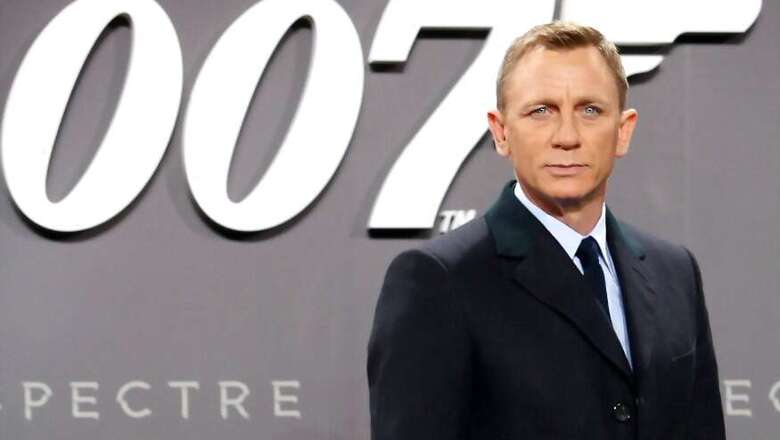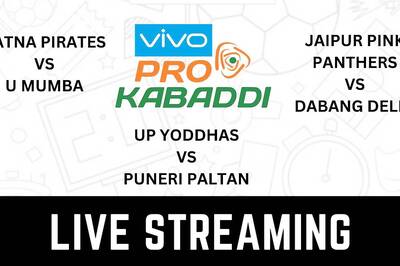
views
In the wake of the slaughter of 40 men of the Central Reserve Police Force at Pulwama in Jammu & Kashmir, patriotism is palpable everywhere — in streets, political discussions, public spaces, media platforms. It would be instructive to examine the content of this patriotism, especially as depicted in our cinema, and compare it with that of James Bond, the protagonist of the famous movie franchise.
But first James Bond. Not many people, at least in India, have noticed that he is also a patriot, “Her Majesty’s loyal terrier,” as one of his opponents described him (Golden Eye). Perhaps, this is because of his flamboyance, of his being the ultimate male fantasy: he drives the swankiest cars, goes around with the finest women, and gets out of the stickiest situations.
His patriotism, however, is not akin to that of Manoj Kumar and Sunny Deol; Bond doesn’t scream about his love for his country. In fact, he doesn’t express extreme emotions—no loud protestations, no big speeches extolling the virtues of his own country, no kutte kamine main tera khoon pi jaaunga, no crying, no smearing of face with desh ki mitti.
Bond’s equanimity and composure, however, don’t make him a lesser patriot or less tough. He doesn’t break during his 14-month stay in a North Korean prison (Die Another Day); he doesn’t yield in the face of dreadful torture, imminent castration, and certain death (Casino Royale); in fact, he sniggers with his tormenter, cracking dirty jokes and even teasing him.
Despite such unflinching patriotism, Bond not only does not wear it on his sleeve but also considers his existence as an agent of the British government as a job, not some holy duty. He says so to an adversary, an assassin (Tomorrow Never Dies).
Evidently, he also enjoys his job. And he doesn’t find any incongruity in simultaneously working for his country and making love to women. As he once said sardonically while disrobing a lady, “The things I do for England!” (You Only Live Twice)
Now compare him with Bharat aka Manoj Kumar. I read somewhere that in a movie with a patriotic theme, he did not touch his heroine in any of the scenes. Perhaps it is one of those apocryphal stories but it sums up not only Kumar’s but the entire country’s attitude towards patriotism. And the attitude is problematic.
For it is premised on the belief that the country or the nation is something other than and above the people of the country, some metaphysical, divine entity that has to be worshipped. It is certainly, according to this viewpoint, not a lived reality.
In this context, it would be instructive to know what the great economist Milton Friedman said about former US president John F. Kennedy’s famous 1961 quote: “Ask not what your country can do for you—ask what you can do for your country.”
Critiquing the quote in Capitalism and Freedom (1962), Friedman wrote: “In a much-quoted passage in his inaugural address, President Kennedy said, ‘Ask not what your country can do for you—ask what you can do for your country.’… The paternalistic ‘what your country can do for you’ implies that government is the patron—the citizen, the ward, a view that is at odds with the free man’s belief in his own responsibility for his own destiny. The organismic, ‘what you can do for your country,’ implies that government is the master or deity—the citizen, the servant or votary.”
Friedman went on to describe the citizen in a democracy: “To the free man, the country is the collection of individuals who compose it, not over and above them. He is proud of the common heritage and loyal to common traditions, but regards government as a means, an instrumentality—neither a grantor of favors and gifts, nor a master or god to be blindly worshipped and served. He recognizes no national goal except as it is the consensus of the goals that the citizens severally serve. He recognizes no national purpose except as it is the consensus of the purposes for which the citizens severally strive.”
“The free man will ask neither what his country can do for him nor what he can do for his country. He will ask rather ‘What can I and my compatriots do through government’ to help us achieve our several goals and purposes, and above all, to protect our freedom?”
Unfortunately, Indian nationalists have always been keen on maintaining the nation-citizen duality; they regard the nation as a deity. This transforms patriotism into some sort of piety, worship; and you don’t mix carnal love with devotion to divinity. The piety is often boisterously and sanctimoniously flaunted. Hence Bharat or Manoj Kumar’s abjuration.
The loud, raucous nationalists in our country will find it distasteful to realize that James Bond is a true, patriotic karmayogi—unwavering in his love for his country, risking his life, liberty, and limb in the line of duty, detached from and unmindful of the consequences of his actions. Well, not sanskari, but a great patriot nonetheless.The author is Editor, Power Corridors. Views are personal




















Comments
0 comment